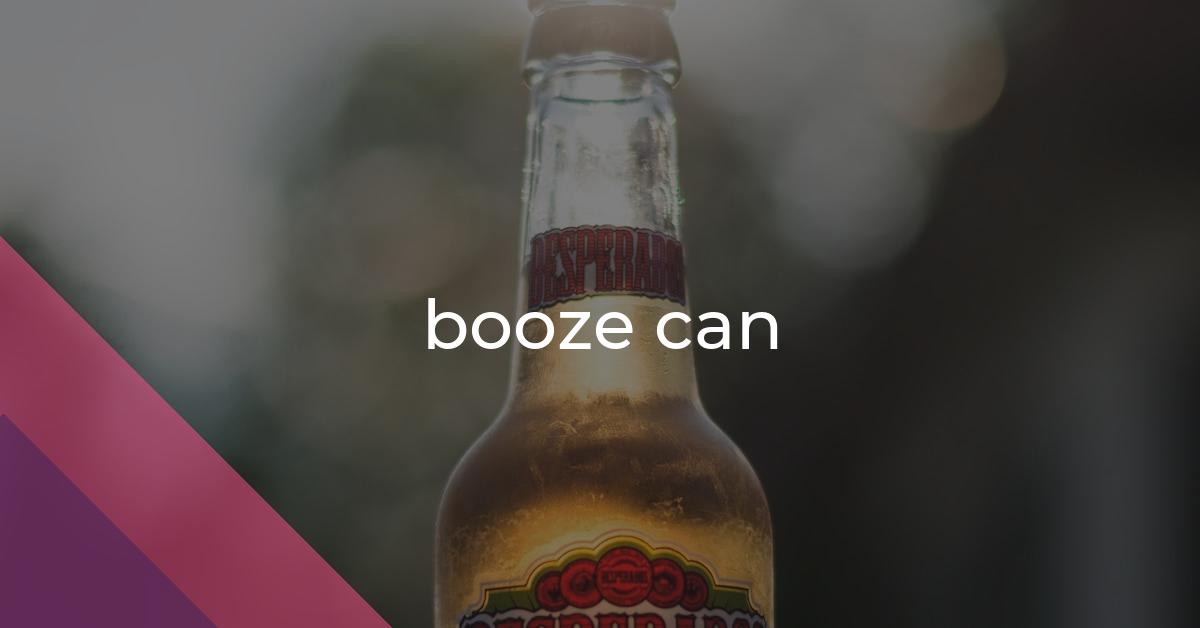booze can: Idiom Meaning and Origin
What does ‘booze can’ mean?
The idiom "booze can" refers to a container used for storing or consuming alcoholic beverages. It is often used to describe excessive drinking or the presence of alcohol at a social gathering.

Idiom Explorer
An idiom meaning to consume a large quantity of alcohol, usually resulting in getting drunk or excessively intoxicated.
The idiom "bundle of laughs" refers to a person or situation that is amusing or enjoyable. It implies that being around this person or situation is likely to bring joy and laughter.
The idiom "bubble over" means to become very excited and enthusiastic about something, often to the point of being unable to contain one's emotions.
The idiom "broad in the beam" refers to someone who has a wide or large bottom. It is often used to describe a person who is overweight or has a voluptuous figure.
The idiom "bottle away" means to store or hide something, usually in a secretive or concealed manner.
The idiom "boil up" means to become angry or to become intensely emotional about something. It is often used to describe a sudden outburst of emotions or anger.
The idiom *boil over* means to lose control of one's emotions and become extremely angry or upset. This expression is often used in situations where emotions reach a point of overflowing or becoming uncontrollable, much like boiling liquid that spills over the edge of a pot.
Unveiling the Euphoric Allure
The idiom "booze can" is a term used in North America to refer to a container for alcoholic beverages. It is often associated with drinking alcohol secretly or in an illicit manner. The term "booze" originated in the early 20th century as slang for alcohol, while "can" refers to a container that holds liquid. Therefore, "booze can" signifies a container specifically designed for holding alcoholic beverages.
The popularity of the idiom "booze can" grew during the Prohibition era in the United States, which lasted from 1920 to 1933. This was a time when the production, sale, and distribution of alcoholic beverages were banned. As a result, illegal venues known as speakeasies emerged, where alcohol could be consumed discreetly. It is believed that the term "booze can" originated during this period to refer to the hidden containers or establishments associated with covert alcohol consumption.
During the mid-20th century, the usage of the idiom "booze can" became more widespread. It appeared in literature, film, and music, often portraying the clandestine aspects of drinking during Prohibition or in other contexts where alcohol consumption was prohibited or frowned upon.
Today, the idiom "booze can" is still used in informal conversations or narratives to describe a container for alcoholic beverages. Depending on the context, it can carry connotations of secrecy, rebellion, or indulgence in alcohol.
Now let's take a look at a couple of related idioms: "tie one on" and "hit the bottle." These idioms are both commonly used to describe heavy drinking or excessive alcohol consumption.
"Tie one on" is an idiom that dates back to the mid-20th century and is often used in American English. It means to become heavily intoxicated by drinking alcohol. The origin of this idiom is unclear, but it is believed to have originated from the notion of tying an alcoholic beverage container, such as a flask or bottle, to one's person in order to ensure a steady supply of alcohol throughout the day or night.
"Hit the bottle" is another idiom that is widely used to describe heavy drinking. It originated in the early 20th century and refers to the act of physically striking or hitting a bottle to open it. This idiom implies a sense of desperation or reliance on alcohol as a coping mechanism or escape from problems or stress.
These idioms, "tie one on" and "hit the bottle," share a common thread with the idiom "booze can" in that they all relate to the consumption of alcohol, albeit in different contexts. While "booze can" refers to a container for alcoholic beverages, "tie one on" and "hit the bottle" focus more on the act of drinking itself and the potential consequences of excessive or heavy alcohol consumption.
It is worth noting that idioms can have varying connotations and interpretations depending on the cultural and social context. The usage of these idioms may also evolve over time, reflecting changes in language and societal norms surrounding alcohol consumption.
The idiom "booze can" is a colloquial term used to refer to a container for alcoholic beverages. Its origin can be traced back to the early 20th century, and it gained popularity during the Prohibition era. Today, the idiom is still used to describe a container for alcoholic beverages, often associated with secrecy or indulgence. Additionally, the related idioms "tie one on" and "hit the bottle" both relate to heavy drinking or excessive alcohol consumption, providing further insight into the diverse ways in which alcohol-related idioms are used in everyday language.
Example usage
Here are three examples of how the idiom "booze can" can be used in a sentence:
- After a long week at work, John decided that a little booze can really help him relax.
- The doctor warned that excessive booze can cause serious health problems.
- Jane learned the hard way that too much booze can impair her judgment.
More "Alcohol" idioms



